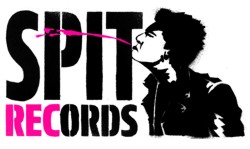

THE DETONATORS
|
While still at school in the mid '70’s Howard Ingram played in a band called Essence alongside Barry Mcllhenny. Ingram wanted the band to play original material instead of the Status Quo and Deep Purple covers favoured by the rest of the group and when the others decided to cover Al Martinos Spanish Eyes "because it would go down well in working men's clubs", he promptly quit to form his own band. Mcllhenny went on to front Shock Treatment before carving out a successful career in journalism with publications such as Melody Maker, Q Magazine and Empire. Today he is Editor in Chief of Emap Metro. In 1976 Ingram's new, and as yet unnamed, group consist-ed of himself (vocals, guitar) Alan Gourley (vocals, guitar), Ali McMordie (vocals, bass) and Rod Murray (drums). The band performed live several times under the name Roche 4 and then played at one of the earliest punk venues, the Glenmachan Stables, as Skull. Skull split up the day of the gig and, as Ingram's band called in as last minute replacements, they decided to use another band's name. At one of the punk gigs in Glenmachan, a band called Highway Star spotted Ali and promptly offered him a job following the departure of their own bass guitarist, Gordy Blair, to Belfast punk band Rudi. McMordie accepted the offer and shortly after, Highway Star changed their name to Stiff Little Fingers! McMordie's replacement was Paul McIlwaine (vocals and lead guitar), and Ingram switched to bass. Prior to this, Gourley and Ingram competed to play the dumbest one-note lead solos they could, which they thought was acceptable in the era of the Ramones. Actually, before he had been allowed to join the band McMordie had to make Ingram a tape of the Ramones LP, which he’d, bought on import before its UK release so that the band could learn it in its entirety! The band took the name The Detonators shortly after McIlwaine’s arrival. Their first rehearsal was on Jubilee Day '77, and they played whenever and wherever they could after that. A little known Detonators' fact is that the band were 'signed to the Good Vibrations Record label and Terri Hooley booked them into Wizard Studios for a six hour recording session. However, the session was a disaster for the band, as the bloke who ran the studio was unavailable and his pal who normally looked after the Wizard clothes was left in charge; he didn't seem to have a clue what he was doing, so The Detonators left without recording anything and the Good Vibes with nothing to release. Just a week later they' traveled to Belfast’s Hydepark Studios and recorded the tracks “Crusin” and “Light at Your Window” for George Doherty’s Rip-Off label, and these tracks were included on the compilation album “Belfast Rock”. The Detonators took part in a big 'Battle of the Bands Concert at Belfast’s McMordie Hall QUB along with the Undertones, Rudi and the Outcasts. When the Buzzcocks played Belfast’s Ulster Hall on 28th September 1978, the Detonators where the preferred support act having attracted quite a following during the period 1976-1978. The winter of 78 saw some line up changes with Rod Murray quitting the band to go to University in Sheffield. He was replaced by Steve Mulree who made his debut at the aforementioned Buzzcocks gig. Prior to the Buzzcocks gig Belfast Rocks was released – The George Doherty production was less than the band expected and he had added a synth part to the song Light At Your Window without asking the band. Alan Gourley (Spike) left the band in September 1978 to pursue a University place in Cardiff. Paul McIlwaine and Howard Ingram split around the same time to join punk/new wave band The Tearjerkers and the Detonators split. This isn’t quite the end of The Detonators story as 26 years later in May 2002 the original line-up reunited in Sheffield and recorded some new tracks. |
©
Spit Records 2025
All Rights Reserved.
